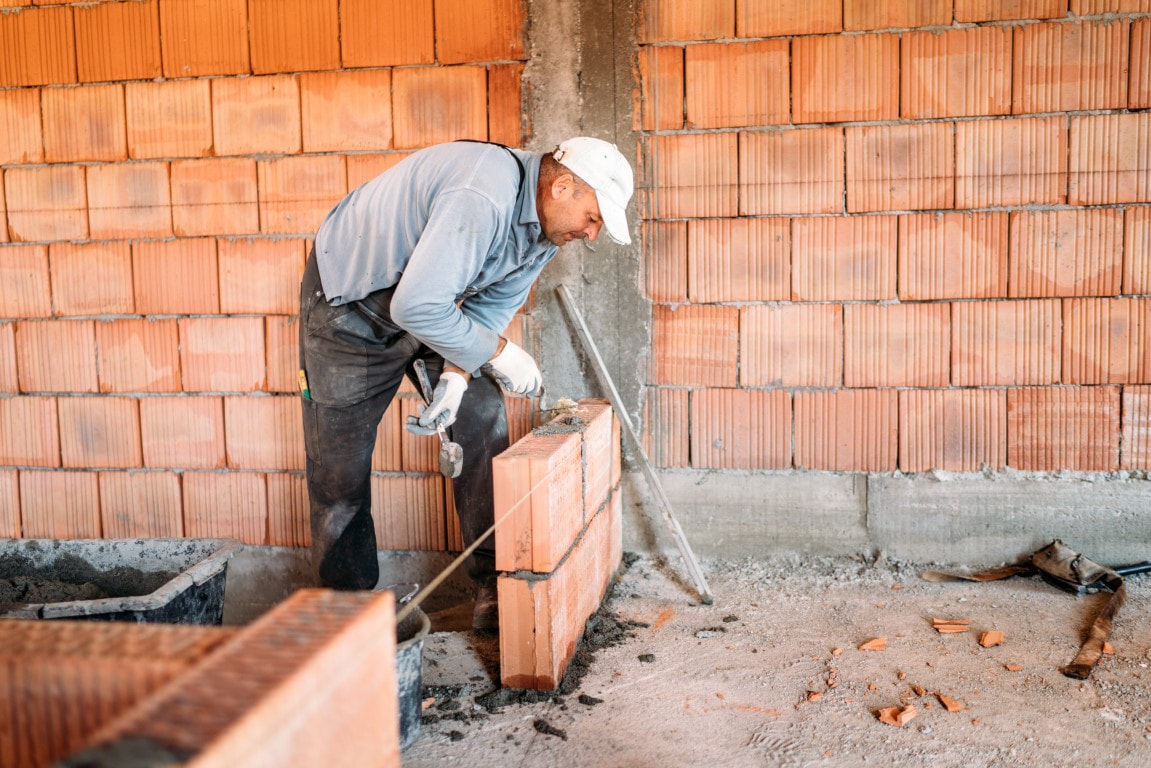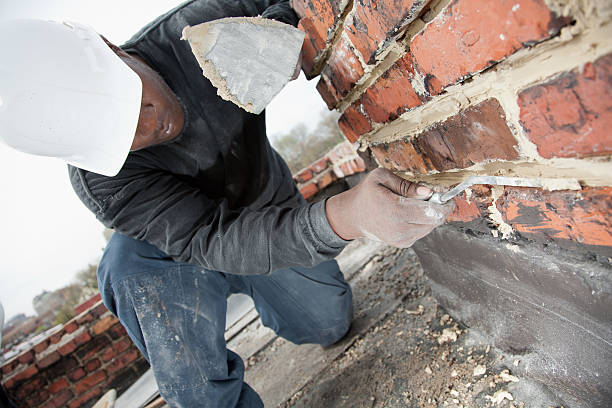Unlocking the Secrets of Lasting Stonework Building And Construction Practices for Eco-Friendly Buildings
In the realm of modern building and construction, the search of sustainable practices has actually ended up being extremely important. Amongst the myriad techniques to environment-friendly building, lasting masonry construction stands apart as a tried and true and resilient approach that holds a riches of untapped potential. From the selection of materials to cutting-edge building and construction strategies, the tricks to attaining sustainability within masonry construction are diverse and intriguing. By discovering the advantages, materials, methods, and future trends of sustainable stonework, a deeper understanding of just how these methods can shape the future of environment-friendly buildings emerges.
Advantages of Lasting Masonry Building And Construction
Accepting sustainable masonry building and construction techniques not only reduces ecological impact but additionally uses long-term financial benefits to contractors and areas. By using products like recycled blocks, obstructs, and rocks, contractors can significantly lower the carbon footprint of their jobs while promoting resource performance. In addition, lasting stonework building and construction strategies, such as appropriate insulation and thermal mass residential properties, can improve power efficiency within structures, leading to minimized operational expenses with time.
In addition, the longevity and durability of stonework frameworks contribute to long-term economic advantages. Structures constructed utilizing lasting masonry methods often call for much less repair and maintenance, converting to cost savings for builders and building owners. The durability of stonework products additionally ensures that structures stay steady and safe, decreasing the requirement for regular improvements or substitutes.
Eco-Friendly Masonry Materials
Utilizing eco-friendly masonry materials is a critical step towards improving the sustainability of building techniques and decreasing ecological influence while taking full advantage of long-lasting economic advantages. Sustainable masonry products are sourced, generated, and made use of in a fashion that minimizes general environmental impact. Materials such as recycled blocks, redeemed rock, and sustainable concrete blocks are ending up being progressively preferred options for eco-conscious building contractors. Recycled blocks, as an example, not only draw away waste from land fills yet likewise need less power to create compared to new blocks. Recovered stone supplies a special aesthetic allure while minimizing the demand for new quarrying. Sustainable concrete obstructs integrate recycled aggregates and might feature better insulation buildings, adding to energy efficiency in buildings.
Moreover, natural materials like adobe, rammed planet, and straw bundles offer superb thermal mass homes, lowering the need for home heating and cooling down power. These materials are frequently locally offered, promoting regional economic climates and lowering transportation-related carbon exhausts. By choosing environment-friendly masonry products, construction projects can significantly minimize their environmental footprint and add to the creation of much healthier, extra sustainable constructed atmospheres.
Energy-Efficient Stonework Techniques
Power performance plays a crucial function in boosting the sustainability of stonework building practices. By implementing energy-efficient masonry methods, builders can substantially reduce the overall energy usage of a building, causing reduced functional costs and a smaller environmental footprint. One crucial energy-efficient stonework strategy is using thermal mass, which involves incorporating dense materials like concrete or block right into the structure's framework to soak up and keep warmth. This aids regulate indoor temperatures, decreasing the need for mechanical heating and cooling systems.

Innovations in Lasting Masonry
Current developments in lasting masonry methods have brought about ingenious strategies that are improving the building industry. One such advancement is the growth of self-healing concrete, which makes use of bacteria installed within the concrete to heal splits autonomously. This innovation not only lowers upkeep expenses yet also boosts the longevity of masonry structures, adding to their sustainability.
Another notable technology is the use of recycled accumulations in stonework building - masonry contractor. By including products such as smashed ceramic waste or recycled glass into concrete blends, builders can decrease the ecological influence of construction projects while preserving architectural integrity. This practice not only diverts waste from landfills however likewise conserves natural deposits, making it a crucial innovation in sustainable masonry construction
Moreover, the assimilation of digital layout tools, such as Building Details Modeling (BIM), is transforming the way masonry frameworks are planned and constructed. BIM permits more specific estimations, reduced material waste, and boosted energy efficiency, eventually causing even more sustainable building methods. These innovations collectively signify an appealing future for sustainable masonry building and construction in the epoxy stamped concrete era of environment-friendly structures.
Future Trends in Stonework Sustainability
With the cutting-edge strides made in lasting stonework techniques, the future fads in stonework sustainability are positioned to more revolutionize the construction market. One of the crucial trends forming the future of masonry sustainability is the increased integration of innovation. Innovations such as Building Details Modeling (BIM) and virtual fact simulations are being made use of to maximize stonework building and construction procedures, leading to reduced product waste and boosted power effectiveness in advice buildings.
Additionally, the development of unique sustainable materials is readied to play a significant duty in boosting the eco-friendliness of stonework building. masonry contractor. Developments like self-healing concrete, recycled aggregates, and bio-based binders are gaining grip for their capability to reduce ecological effect while preserving architectural honesty

Final Thought
Finally, sustainable masonry building and construction practices provide various advantages for green structures. By making use of eco-friendly materials and energy-efficient techniques, masonry can contribute to a more sustainable built environment. Developments in sustainable stonework are continually being created to further enhance the ecological efficiency of structures. Looking in the direction of the future, the pattern of masonry sustainability is expected to grow, resulting in more environmentally pleasant and energy-efficient building and construction techniques in the years ahead.
Comments on “Trustworthy Chimney Services: Upkeep and Repairs Done Right”